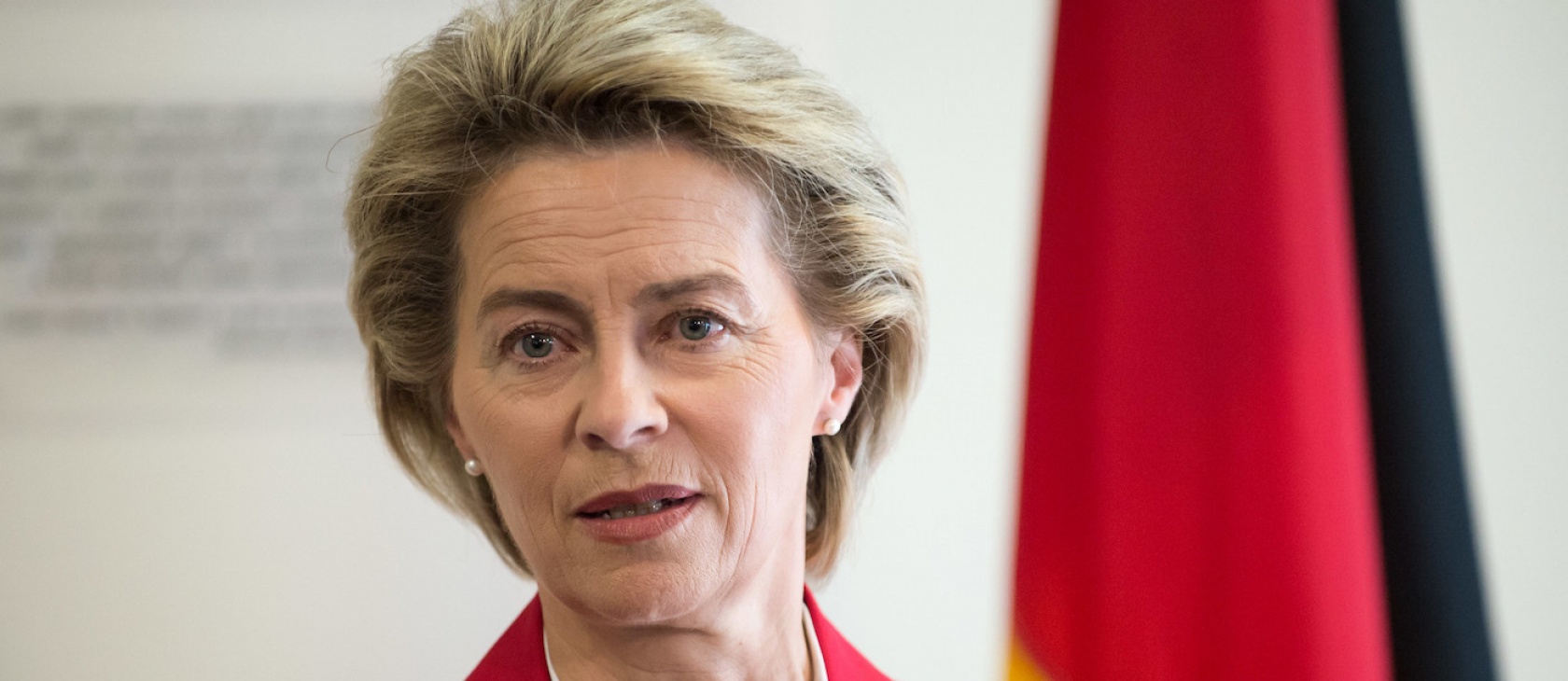In May, citizens of the European Union’s current 28 member states voted for members of the European Parliament. Pro-EU parties won the three largest shares of the vote. The center-rightEuropean People’s Party (EPP), Socialists and Democrats (S&D), and Renew Europe (formerly ALDE) will share power among themselves. This triumverate will control the “top jobs” at the European Commission, the Council of Europe, and the European Central Bank (ECB).
Meanwhile, euroskeptics from the European Conservatives and Reformists (ECR) and Identity and Democracy (ID) factions won 62 and 73 seats, respectively - nearly one-third of that supranational parliament. They may be able to play a deciding role on some votes but lack the power to hold sway or make appointments to the top EU positions.
The people nominated for the leading positions include:
Ursula von der Leyen, new European Commission president
Jean-Claude Juncker has completed his mandate as president of the European Commission. Socialist Dutch politician Frans Timmermans of the Labour Party (PvdA) had sought the office, but he encountered the opposition of the Visegrad Group: Hungary, Poland, the Czech Republic, and Slovakia.
Ultimately, German Minister of Defense Ursula von der Leyen of the Christian Democratic Union (CDU) was tapped as Juncker’s successor. She is the mother of seven children and the former Minister of Family Affairs and Youth. She has supported liberal and progressive opposition to Poland’s Law and Justice (PiS) Party.
Charles Michel, new European Council president
The interim prime minister of Belgium, Charles Michel, who stepped down after his coalition partners the Flemish nationalists of N&VA refused to sign the UN Global Compact for Migration, has succeeded Donald Tusk of Poland as president of the European Council. He is the leader of the liberal Reformist Movement (Mouvement Réformateur, or MR).
Josep Borrell, High Representative for Foreign Affairs
Spain’s socialist faction will likely become more powerful on the international stage, as Spanish Foreign Affairs Minister Josep Borrell has been proposed to be the High Representative of the Union for Foreign Affairs, European Union, and Cooperation. He led the Socialist Party’s (PSOE) list of candidates in the last European Parliament elections and president of that institution between 2004 and 2007.
Borrell is a hyper-europhile. Though he has never explicitly denied the existence of a “Catalan nation,” Catalan nationalists find him disconcerting due to his participation in Catalan Civil Society, which opposes secession.
Christine Lagarde, European Central Bank president
Mario Draghi is leaving his post. He will be replaced by Christine Lagarde, who will leave her position as managing director of the International Monetary Fund (IMF) to become president of the European Central Bank (ECB).
Lagarde, a member of The Republicans (Les Républicains), is known for backing universal basic income (UBI) proposals, advising governments to introduce new taxes like the Value Added Tax (VAT), and supporting negative interest rates. She has warned of a demographic timebomb that may make it difficult for the government to continue paying state pensions.
What is looming in Europe?
Those new job occupants will have to deal with Brexit negotiations possibly led by euroskeptic Boris Johnson, who has not flinched in supporting a “hard Brexit,” as well as Nigel Farage’s new Brexit Party, which is still on the rise. Political and economic clashes with the governments of Italy and Hungary seem unlikely to lessen.
Nevertheless, it does not seem that policies are going to change much, despite the changes in leadership. The ECB will likely continue promoting inflation by lowering interest rates, in spite of the risk of a new recession. Plans for budgetary and fiscal harmonization will not be withdrawn.
Meanwhile, when it comes to cultural issues, Brussels bureaucrats will continue to promote abortion, euthanasia, gender ideology, and multiculturalism by keeping an open doors policy for Muslim immigrants and “refugees.”
The new European bureaucracy has only changed the names and faces. There is no intention to slow or stop EU centralization and economic central planning – nor to lift its opposition to decentralization, human dignity, Christian tradition, and free markets.
(Photo credit: U.S. Secretary of Defense. This photo has been cropped. CC BY 2.0.)




